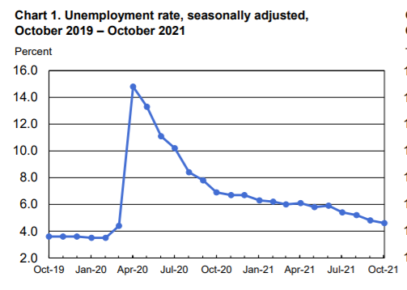Why Flexible Recruiting Has Become the New Watchword for HR Leaders and How You Can Excel At It

Hiring flexible recruiters is one state-of-the-art hiring model that’s gaining a lot of popularity among talent acquisition leaders and employers in the United States lately. This is unsurprising when you consider all the benefits it has to offer.
But what exactly is flexible recruitment? Why has it become the new watchword for HR leaders across the globe?
How can recruiters leverage this strategy to its full potential to streamline their hiring efforts? Read on to find out!
What Is Flexible Recruiting?
Flexible recruitment is an alternative to hiring permanent employees at a company.
The employer or hiring manager hires freelancers, independent contractors, or temporary recruiters instead of hiring a full-time employee. This is a great alternative if you feel that you don’t have the resources to hire a full-time employee.
Keep in mind that most of these temporary workers will follow their own schedule and won’t stick with the conventional 9-5 workday schedule that most companies expect permanent employees to follow.
There are also benefits on the employer’s side. With flexible recruiting, they do not have to adhere to the legal requirements and restrictions of permanent workers. The commitment with part-time or temporary employees and also with independent contractors is far less.
But why are more and more companies adopting this approach?
Reasons Behind the Increasing Popularity of the Flexible Hiring Model
Rise of the Gig Economy has Resulted in a Vast Pool of Freelance Talent
Currently, the gig economy is creating close to 56% employment in the United States alone. It is growing at a rate of 20% – 30% on an annual basis.
One reason the gig economy is growing so fast is thatmillennials account for over a third of the labor forcein the United States. This makes them the largest generation in terms of working professionals.
As this demographic becomes more connected and aware, they’re starting to consider work opportunities that give them more freedom in terms of work flexibility and pay parity. This can include deciding their work schedule per their productivity during the day to work from any remote location.
This means that more people are offering their services as freelancers or contractors, rather than being tied to one company.
Consequently, even employers are coming up with initiatives that will help them optimize the size of their workforce by contracting more quality recruiters on a short-term project or contract basis.
Job Ghosting Is on the Rise Amid the Great Resignation
The Great Resignation is transforming the employment landscape in the country faster than we think.
According to one 2021 press release published by the US Bureau of Labor Statistics, the unemployment rate in the country is as low as 4.6%.

Source:U.S. Bureau of Labor Statistics
As a result of low unemployment rates, hardly any people are competing for more jobs. This hints that there has been a shift of focus, and candidates and job seekers are now exercising more leverage in the job market.
The rapid rate at which candidates are ghosting jobs is nothing but a byproduct of this shift in economy and power. They are increasingly becoming more selective about the employers they wish to pursue or even consider. This is why more recruiters are choosing to offer their services on their own terms.
Due to all these reasons, more and more candidates are turning to freelance opportunitiesand the flexible work model. Forward-thinking companies will start to recognize this and consider shifting towards a flexible recruitment model if they wish to increase their business’s bottom line in the long run.
Business Benefits of Adopting a Flexible Recruiting Model
Flexible recruiting can have many benefits for employers wanting to scale quickly, irrespective of whether yours is a startup or an established organization. Some of these benefits include:
Greater Efficiency and Mitigated Overhead Costs
Flexible recruitment can provide immense financial benefits since workers who value flexibility often work at competitive or reduced rates.
While compensation differs based on the freelance worker’s level of experience and position, it isn’t uncommon to observe a 10-15 percent discount in salary. Plus, there are no or low side perks/benefits costs for part-time, flexible workers. You may also save on various office-related expenses and resources.
Recruiters hired through this model can also prove to be more efficient since they’re under constant pressure to prove their caliber to land more assignments.
Ease of Employing More Talented Candidates in a Tight Labor Market
Flexible recruiting provides companies with the ease to look up, reach out to, and experiment with more talented candidates in a tight labor market.
When some companies realize they needed to refine their workforce, they encountered a very tight talent market within their industry, both on a national and local level.
Soon, talent acquisition leaders at your company will realize that they need to find recruiters who have a unique network that your company doesn’t have access to.
By creating a flexible workforce plan, your organization will be able to bring in talent that was previously out of reach.
How to Fuel Your Flexible Recruitment Strategy
While every company is different and there’s no “secret sauce” to win at flexible recruiting, there are a few tried and tested tips that can help your flexible recruitment strategy.
1. Assess Your Greater Business Goals Before You Start Planning
Before you begin to plan your flexible recruitment strategy, you’ll need to assess your business’ goals for the coming months.
Growing your business, having a hiring spree, or experiencing busy periods during peak hiring seasons will provide a clear indicator as to which weeks/months will require additional headcount. You can then start reaching out to flexible workers according to how many recruiters you need.
2. Consider Individual Team Workloads and Skills
Once you’ve assessed and strategized around your greater business goals for the year, you can aim to move down the chain and explore your business’ temporary recruitment needs on a more granular level.
Conducting meetings with existing HR leaders will help you closely identify ongoing vacancies and skill gaps that you need to fill on an immediate basis. You’ll also gain more insight into individual staffing needs, such as cover for holidays or maternity leave.
3. Formulate an Effective Onboarding Strategy
Leaders of the most successful companies know great onboarding is crucial to ensure new freelance or contractor hires can become valuable, long-term associates.
You can follow these five rules to foster high-performance employees who stick around for longer:
- Tailor onboarding to make it an engaging and motivating experience for the fresh recruit.
- Use the “Buddy Program” to make new hires feel welcomed.
- Dedicate time during the onboarding process toward educating new freelance workers about the fundamentals of your company mission, vision, and culture.
- Keep regular check-ins going throughout the recruiter’s engagement with your company, not just the first few weeks or months.
- Prepare your team to impress. They should be welcoming and ready to answer any questions.
4. Seek Help from Experts in the Niche if Need be
Another benefit to having an agency with proven expertise in the flexible recruitment niche on your side is that it can help ease your recruitment strategy process by allowing time for HR to plan out the flexible recruitment to meet your business needs.
External or contract recruiters usually have a network of readily available talent. They are well-versed in interviewing and screening quickly. Once you’ve established a good working relationship, hiring becomes easier and faster because your chosen agency will be familiar with your recruitment process, corporate culture, and employee preferences.
5. Look at Ways You Can Leverage Technology to Streamline the Process
To help your contractors or freelancers hit the ground running, ensure your strategy allows you to move quickly when making an offer and that you provide some type of onboarding for them as soon as possible.
Teach them everything they need to know and make sure you explore their complete skill set so you know you’re getting maximum value.
Some of the ways hiring managers can think about reducing the time-to-hire include:
- Leveraging state-of-the-art technology innovations such as email automation to furnish quick responses and predictive analytics to anticipate the longevity of a potential recruit based on their behavioral patterns.
- Consider conducting group interviews for the initial stages of screening, where you can have questions ready beforehand.
- Using pre-screen tests and questionnaires to weed out unqualified applicants right during the initial stages.
Interested in Creating a Flexible Recruitment Strategy?
Are you interested in discussing how many flexible recruiters we can add to your strategy for the coming year?
Contact the team atRecruiter.com to find out more.
We will be happy to help you with your smallest queries and help you build a highly flexible work culture that reaps promising results.
Get the top recruiting news and insights delivered to your inbox every week. Sign up for the Recruiter Today newsletter.

